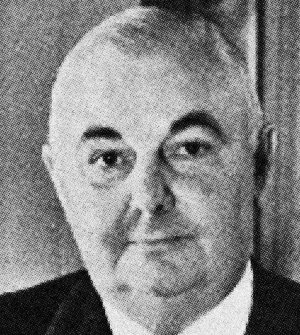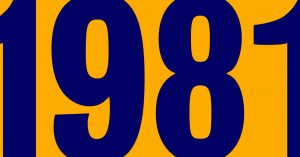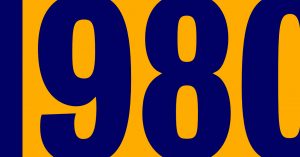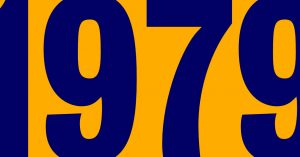ATV financial results: 1958
Prince Littler on Associated Television Limited’s 1958 results
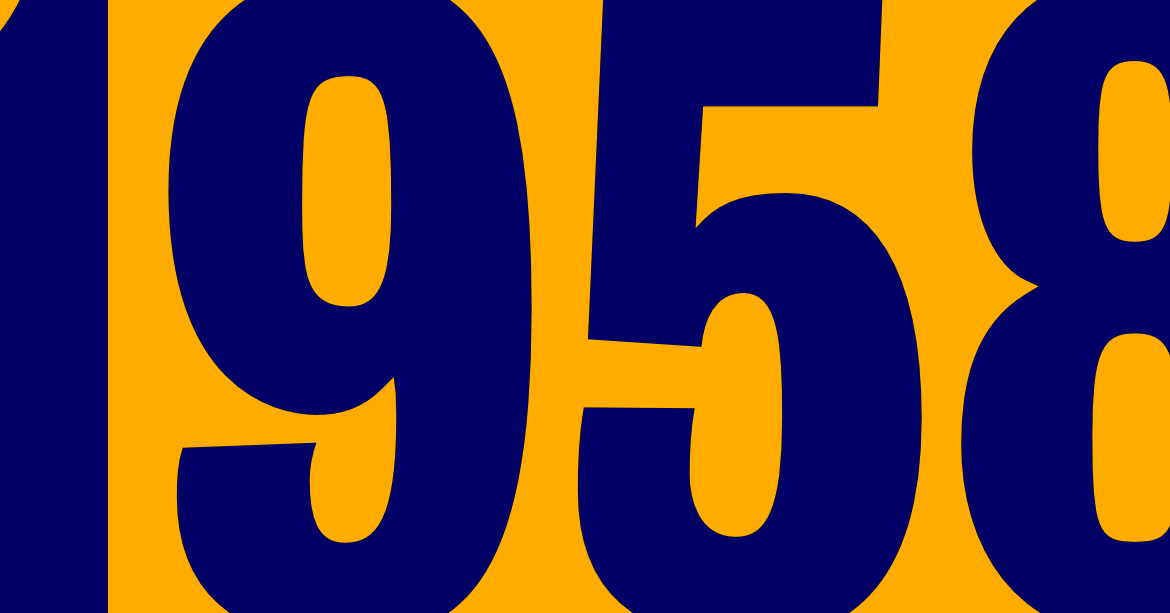
WIDENED FIELD OF PROGRAMMES
INCREASING VOLUME OF ADVERTISING
MR. PRINCE LITTLER ON EXPANSION PLANS
The annual general meeting of Associated Television, Ltd., will be held on July 29 at Television House, Kingsway, London, W.C.
The following is the statement by the chairman, Mr. Prince Littler, C.B.E. which has been circulated with the report and accounts:–
When I addressed you at the last Annual General Meeting the Company was only just emerging from the financial shadows of the the opening period when every week of operation meant an additional heavy loss to your Company. It is not too much to say that your Company, the first to come forward ready to take the challenge of operating an independent service, was more heavily penalized by events than any of its competitors. The unavoidable delay in opening the Midlands transmitter meant that for a period of five months the Company was burdened by full overheads while forced to forgo approximately 50% of its legitimate market.
Those days are now past. In the result your Company has taken its full share in the expansion of the television broadcasting industry. Advertising revenue has continued to build up with the growth of the Independent Television network. New stations have come into operation in Scotland and Wales the past year – and the number of viewers able to receive Independent Television programmes is now approximately 20,000,000. The continued increase in the volume of advertisement bookings confirms the growing confidence of advertisers in the value of television as the best means of reaching and holding the public. On the other hand, programme costs have also risen despite increased networking, but this is unavoidable if we are to pursue our policy of improving on past standards.
Transdiffusion analysis
Three years into ITV and already ATV is chafing at the structure of the network – a structure that allowed them to continue trading when losing bucketfuls of cash every day for the first eighteen months.
Now they’re firmly into profit – indeed, there’s the first hints in this report that they now have more money than they know what to do with – the protection the structure offered (access to Associated-Rediffusion’s deep pockets, an advertising monopoly when they were on air, the fair division of the main areas into roughly equal thirds of costs) is holding them back. More than that, it’s costing them, with two production hubs and a need to keep shifting attention from London to Birmingham and back every week. It would be far better if they just had a seven-day contract. And not just a seven-day contract: they should be in London all week.
They know from the Midlands that a weekday company is a very different animal to a weekend one, much heavier with extra public service responsibilities, so for any plan to move to a London all-week ITV-2 contract to work, they’d be looking at the new network being very lightly regulated compared to ITV-1. Leave A-R with the documentaries, news features, religion and sport, and a 7-day ABC Midlands with all the tiresome local programmes, and launch ITV-2 as an almost literal all-singing, all-dancing network.
Even if the ITA, Post Office or government were to wear this plan – and there’s no chance at all that they would, not a single one – ATV would still have to shoulder the start-up costs all over again, so the shareholders are unlikely to wear it either. But the company is rolling in money and has to do something with it.
Profit and Dividend
The profit after taxation for the year ended 30th April, 1958, amounted to £1,997,909 [£38m in today’s money allowing for inflation – Ed], eliminating the debit balance of £483,794 [£9.2m] brought forward on the Profit and Loss Account and providing for the arrears of dividend paid on 16th December, 1957, amounting to £125,832 [£2.4m], and the interim dividend of 10% paid on the 25th April, 1958, amounting to £91,786 [£1.8m], there remains a credit balance on Profit and Loss Account of £1,296,497 [£24.6m]. From this your Directors have recommended payment of a final dividend of 20% on the “A” Ordinary and Ordinary Shares, absorbing £183,573 [£3.5m], to which must be added a Deferred Share dividend of £29,884 [£568,000], in accordance with the Articles of Association. The Directors also recommend that the sum of £750,000 [£14.3m] be transferred to General Reserve, leaving £333,040 [£6.3m] to be carried forward on Profit & Loss Account.
During the year, a staff profit-sharing scheme was introduced, and provision has been made for a distribution of £146,562 [£2.8m]. For the first time since inception of the Company, provision has been made for the payment of Directors’ fees amounting to £29,000 [£551,000]. You are accordingly asked to pass the necessary resolution for this purpose.
Balance Sheet Items
Turning to the Balance Sheet, you will see that the amount of “A” Ordinary Shares issued and fully paid has increased by £292,880 [£5.6m], as a result of conversion of a similar amount of 6% Convertible Unsecured Loan Stock 1960-63. Fixed assets after provision for depreciation have risen by £77,977 [£1.5m]. The principal addition to fixed assets comprises a freehold property and buildings which are being adapted for urgently needed storage and studio space. The liquid position of the Company again shows marked improvement in the Bank Balances, Sums on deposit and Cash in hand standing at £8,203,732 [£156m]. The balance of the mortgage on the Company’s studios at Elstree has been called for repayment on the 31st January, 1959.
With the Company’s increased trading and with the large number of programmes produced for the I.T.A. network as a whole, the Company has experienced a grave shortage of essential office and studio accommodation. Accordingly, the lease has now been negotiated for new office premises, adequate to the expanding needs of the Company in a centrally situated block which is being designed to meet the Company’s requirements. Moreover, a suitable studio site within easy reach of the West End has now been selected and negotiations for its acquisition are currently proceeding.
Improvement in Liquid Position
With the improvement in the liquid position of the Company, the Board has given its attention to investing in the United Kingdom in allied and ancillary fields. As a first step in this direction your Company acquired on the 9th May, 1958, £500,000 [£9.5m] 7% Convertible Unsecured Loan Stock in British Relay Wireless & Television Limited with attractive conversion rights into ordinary shares in 3 and 4 years’ time. British Relay Wireless & Television operates television and radio relay services over parts of London and in many other urban areas, as well as a television and radio rental business, and by the extension of its operations creates new television viewers for our own programmes.
Your Board, moreover, is currently seeking to negotiate the purchase of one of the major producing companies specialising in the production of films for television. The company question has an outstandingly successful record, notably in the American market. Your Board feel that, in the acquisition of this company, your own Company’s position in the production field would be greatly strengthened.
Development Overseas
During the year the Board has given considerable attention to opportunities for participation in the development of commercial television and radio broadcasting in English-speaking territories overseas, including the U.S.A. Two of your Directors, Mr. Norman Collins, the Deputy Chairman, and Mr. Richard L. Meyer, have made a number of visits overseas to carry out on-the-spot investigations. One major project to which the Company has signified its assent is at the moment before a Commonwealth Government for their approval; and, in readiness for anticipated developments elsewhere within English-speaking world, the Company either has registered, or is in process of registering, Companies in Canada, East Africa, the West Indies and Bermuda.
Position Notably Maintained
The Company’s pioneer position in providing programmes of wide appeal has been notably maintained and, at the same time, the range of productions has significantly expanded. Since my last report, the Company has embarked on a widening field of programmes dealing with Religion, the Arts, public affairs and matters of general sociological interest. Notable among the religious contributions have been “Christ in Jeans” (as the modern dress Passion Play was entitled by the Press) and a specially filmed documentary record of the British Pilgrimage to Lourdes in the Centenary year; among the outstanding individual contributors have been Dr. George MacLeod, Moderator of the Church of Scotland, 1957-1958, and such leading Nonconformists as Dr. Leslie Weatherhead and Dr. Donald Soper. Moreover, a series of six programmes, introduced by the Archbishop of Canterbury, has been arranged to cover the major issues raised at the 1958 Lambeth Conference.
As regards the Arts, Sir Kenneth Clark, the ex-Chairman of the Independent Television Authority, recently agreed to become Adviser to the Company and initiated a series of widely-acclaimed programmes on which he personally appeared. In the field of public affairs, the series of balanced but still highly controversial programmes, “Free Speech,” continued under the Chairmanship of Mr. Edgar Lustgarten, and the lectures of Mr. A. J. P. Taylor helped still further to widen the scope of Independent Television. The Company has, moreover, recognised its responsibility as a public service by the creation of a special programme unit equipped to deal at short notice with such important and emergent issues as Polio and the Cult of Tranquillizers. Meanwhile, in the general field of programming, Mr. Val Parnell’s “Sunday Night at the London Palladium” continues to maintain its place as a national institution and, to cite another example at random, the dramatic serial, “Emergency – Ward 10,” now enjoys an audience of some ten million viewers twice a week.
Future of British Television
Your Board has considered the Company’s future position in the field of British television as a whole and is firmly of the opinion that in television, as in other fields of life, competition is not only desirable but necessary. Accordingly, I am happy to place the Company on records as saying that it would welcome the introduction of a third television service – in competition with your Company’s own operations – and I feel that it would be in the best interests of the country if it were run on commercial lines. The fact that competition leads to better programmes has already been sufficiently proved. Television entertainment from all sources – including the British Broadcasting Corporation – has improved beyond all measure. New opportunities have been offered to artists, writers and technicians, and British television is, in consequence, richer in talent than it has ever been before. Moreover, in the result, the export business of British television programmes has, for the first time, been established on a substantial basis.
Your Company is at the moment unfortunately handicapped by the fact that its licence from the Independent Television Authority provides for no more than part-time working on two different transmitters, i.e. London and the Midlands. With a third television network run on commercial lines this unsatisfactory state of affairs could be remedied. It is your Company’s firm desire to provide the public of the Metropolis – and through the new network such parts of the country as wish to take the programmes – with an unbroken seven-day-a-week service, exhibiting to the full the potentialities of independent and truly competitive television.
Independent Television Authority
I would like also to refer to the Independent Television Authority, the statutory body set up by Parliament to administer the affairs of Independent Television as a whole. Under the able and experienced Chairmanship of Sir Ivone Kirkpatrick, as under the Chairmanship of his predecessor, Sir Kenneth Clark, the Authority continues to act in the fullest degree as guardian to Parliament and public alike. Moreover, the untiring efforts of the Authority’s Director-General, Sir Robert Fraser, have done more than the viewing public will ever realise to make a practical reality of the provisions of the Television Act of 1954.
In conclusion, I would like to express my gratitude to my colleagues on the Board for their unfailing assistance and advice and also to pay tribute to the loyal service rendered to the Company by the Executives and the Staff in both London and Birmingham.
About the author
As a public company with shareholders, ATV was required to publish a detailed Annual Report at the end of each financial year. It was common to also publish a Chairman's Statement, summing up the report in more readable language.


